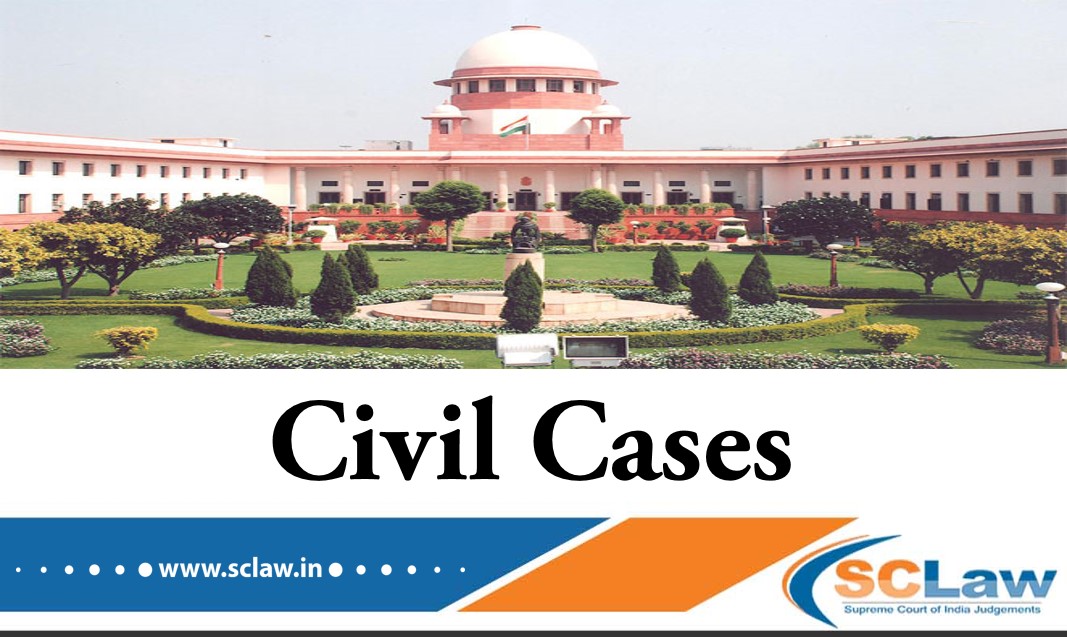COMPENSATION TO BE AWARDED – CONSUMER FORA — The amount of the interest is the compensation to the beneficiary deprived of the use of the investment made by the complainant – Therefore, such interest will take into its ambit, the consequences of delay in not handing over his possession – In fact, that the learned SCDRC as well as NCDRC has awarded compensation under different heads on account of singular default of not handing over possession – Such award under various heads in respect of the same default is not sustainable.
SUPREME COURT OF INDIA DIVISION BENCH DLF HOMES PANCHKULA PVT. LTD. — Appellant Vs. D.S. DHANDA, ETC. ETC. — Respondent ( Before : D.Y. Chandrachud and Hemant Gupta, JJ. )…
Cruelty to Wife—Territorial Jurisdiction—Courts at place wherever wife resides after facing cruelty has territorial jurisdiction to entertain a complaint under S.498-A IPC
2019(2) Law Herald (SC) 1090 : 2019 LawHerald.Org 824 IN THE SUPREME COURT OF INDIA Before Hon’ble Mr. Chief Justice Ranjan Gogoi Hon’ble Mr. Justice L. Nageswara Rao Hon’ble Mr.…
The Commission does have the jurisdiction to dismiss the complaint in limine and decline its admission without notice to the opposite party. However, such jurisdiction to dismiss the complaint in limine has to be exercised by the Commission having regard to facts of each case, i.e., in appropriate case.
SUPREME COURT OF INDIA DIVISION BENCH M/S ANJANEYA JEWELLERY — Appellant Vs. NEW INDIA ASSURANCE CO.LTD. AND OTHERS — Respondent ( Before : Abhay Manohar Sapre and Dinesh Maheshwari, JJ.…
Service Law-Arrears of Pay—Date of first appointment-Delay & Latches-Appellant was appointed on contract basis against a reserved post due to non-availability of candidate–As per orders advertisement was issued continuously for 5 years but no candidate from reserved category was found—Appellant gave representations for de-reserving the post as per office orders
2019(2) Law Herald (SC) 1054 : 2019 LawHerald.Org 820 IN THE SUPREME COURT OF INDIA Before Hon’ble Mr. Justice L. Nageswara Rao Hon’ble Mr. Justice M. R. Shah Civil Appeal…
Insurance—Non-Life Insurance—Death due to malaria occasioned by a mosquito bite at place which is very much prone to such mosquitoes–It cannot be termed as death due to accident—Insurance company held not liable to pay
2019(2) Law Herald (SC) 1072 : 2019 LawHerald.Org 822 IN THE SUPREME COURT OF INDIA Before Honble Mr. Justice Dr. Dhananjaya Y. Chandrachud Hon’ble Mr. Justice Hemant Gupta Civil Appeal…
Transposing of defendants as plaintiffs—Basic requirement for exercise of powers under Order 23 Rule 1-A CPC would be to examine if the plaintiff is seeking to withdraw or to abandon his claim and the defendant seeking transposition is having an interest in the subject-matter of the suit and thereby, a substantial question to be adjudicated against the other defendant
2019(2) Law Herald (SC) 1083 : 2019 LawHerald.Org 823 IN THE SUPREME COURT OF INDIA Before Hon’ble Mr. Justice Uday Umesh Lalit Hon’ble Mr. Justice Dinesh Maheshwari Civil Appeal No.…
Arbitration—Appointment of Arbitrator—Arbitration clause would cease to exist in a contract or a sub contract which is contained in an unstamped agreement
2019(2) Law Herald (SC) 1173 : 2019 LawHerald.Org 832 IN THE SUPREME COURT OF INDIA Before Honble Mr. Justice R.F. Nariman Honble Mr. Justice Vineet Saran Civil Appeal No. 3631…
Dying Declaration—Need for Corroboration—Where the victim was administered sedative as pain killers before making the statement, the victim being in state of delusion cannot be ruled out—In such circumstance there is need for corroborative evidence for relying upon dying declaration.
2019(2) Law Herald (SC) 1157 : 2019 LawHerald.Org 830 IN THE SUPREME COURT OF INDIA Before Hon’ble Mr. Justice S. A. Bobde Honble Mr. Justice Deepak Gupta Criminal Appeal Nos.…
Benami Transactions—Financial Assistance—Merely because some financial assistance has been given by the father to the sons to purchase the properties, the transactions cannot be said to benami in nature. Benami Transactions—Intention of the person who contributed the purchase money is determinative of the nature of transaction–Source of money had never been the sole consideration—It is merely one of the relevant considerations but not determinative in character
2019(2) Law Herald (SC) 1163 : 2019 LawHerald.Org 831 IN THE SUPREME COURT OF INDIA Before Hon’ble Mr. Justice L. Nageswara Rao Hon’ble Mr. Justice M. R. Shah Civil Appeal…
Summoning of additional accused—Standard of Proof—Court has to look for just more than prime facie case and not as if an infallible case was required to be shown by the prosecution in order to proceed against the proposed accused persons
2019(2) Law Herald (SC) 1047 : 2019 LawHerald.Org 819 IN THE SUPREME COURT OF INDIA Before Hon’ble Mr. Justice Abhay Manohar Sapre Hon’ble Mr. Justice Dinesh Maheshwari Criminal Appeal No.…















